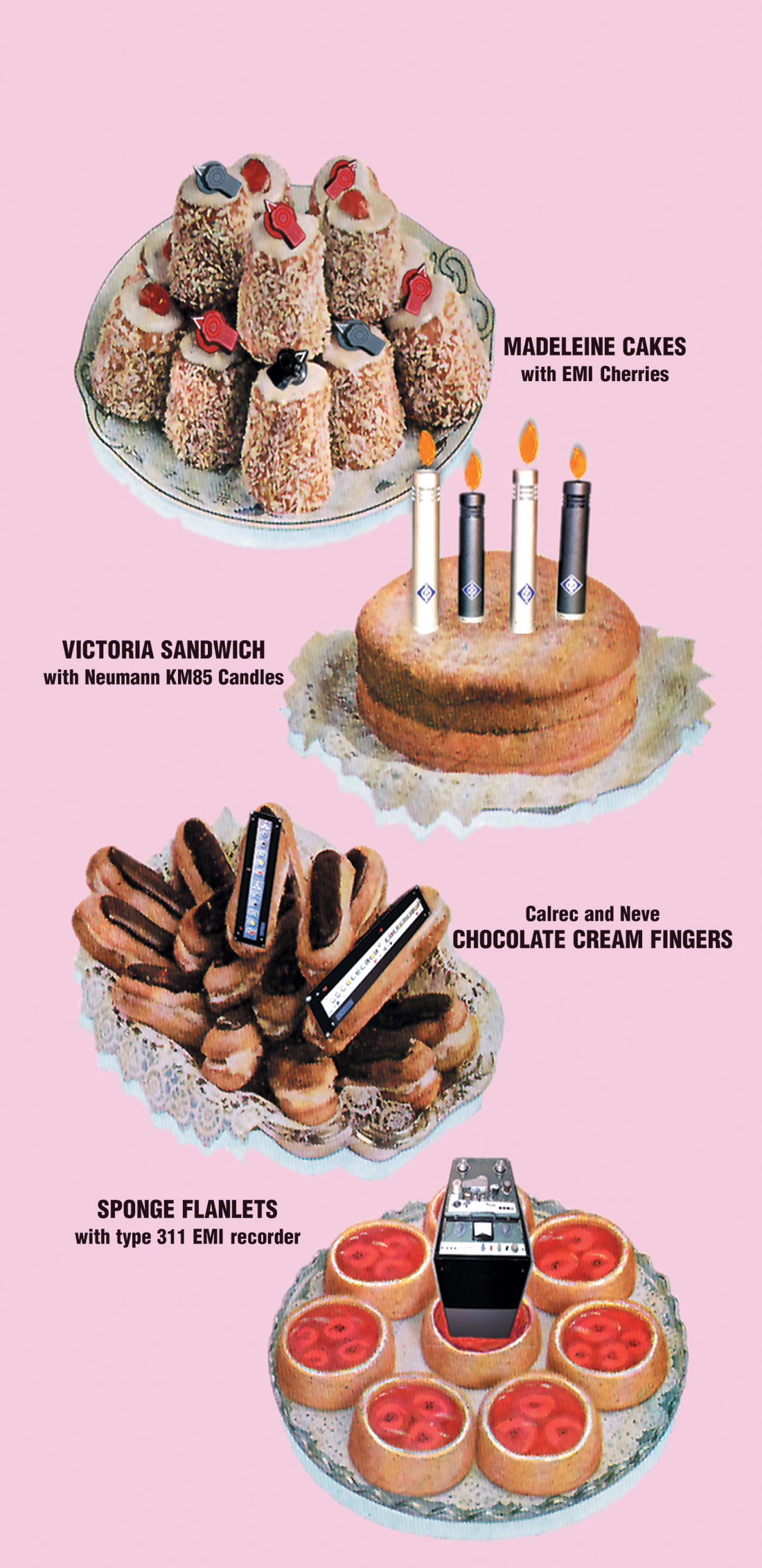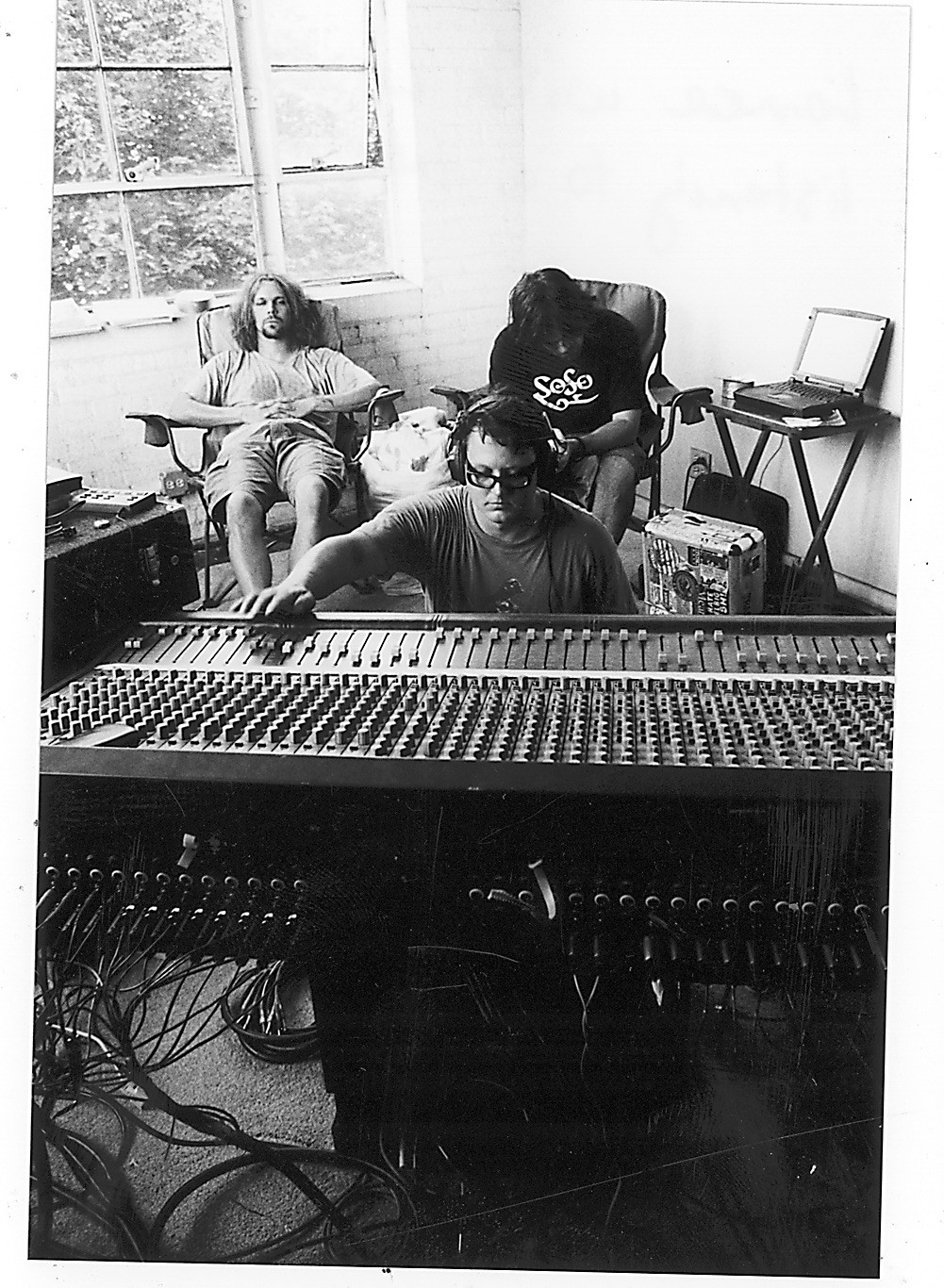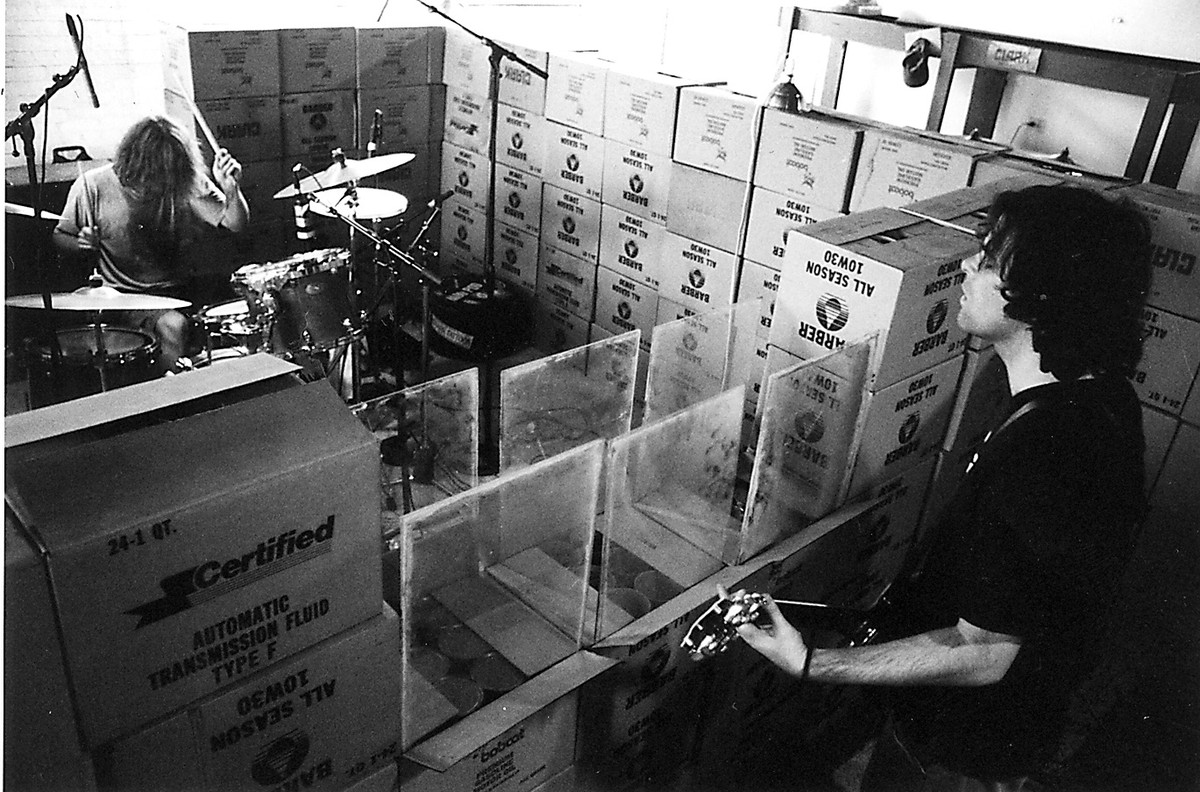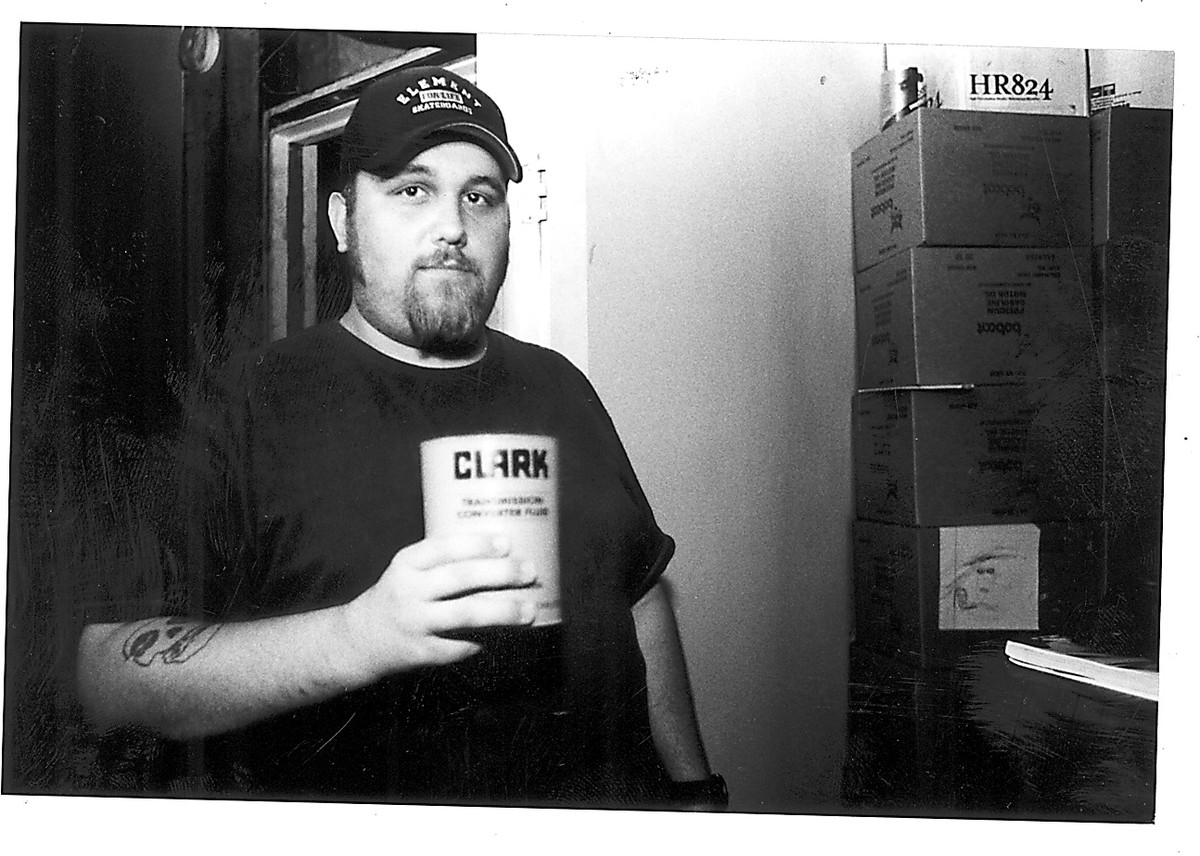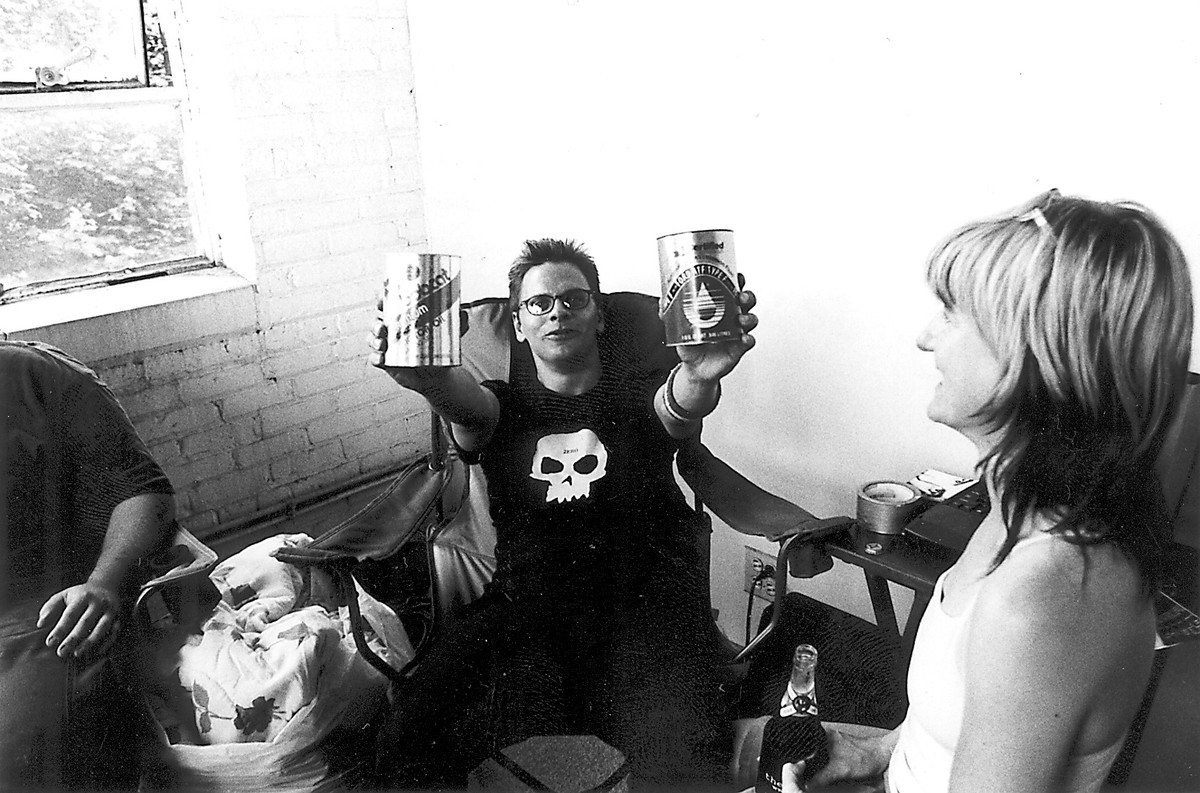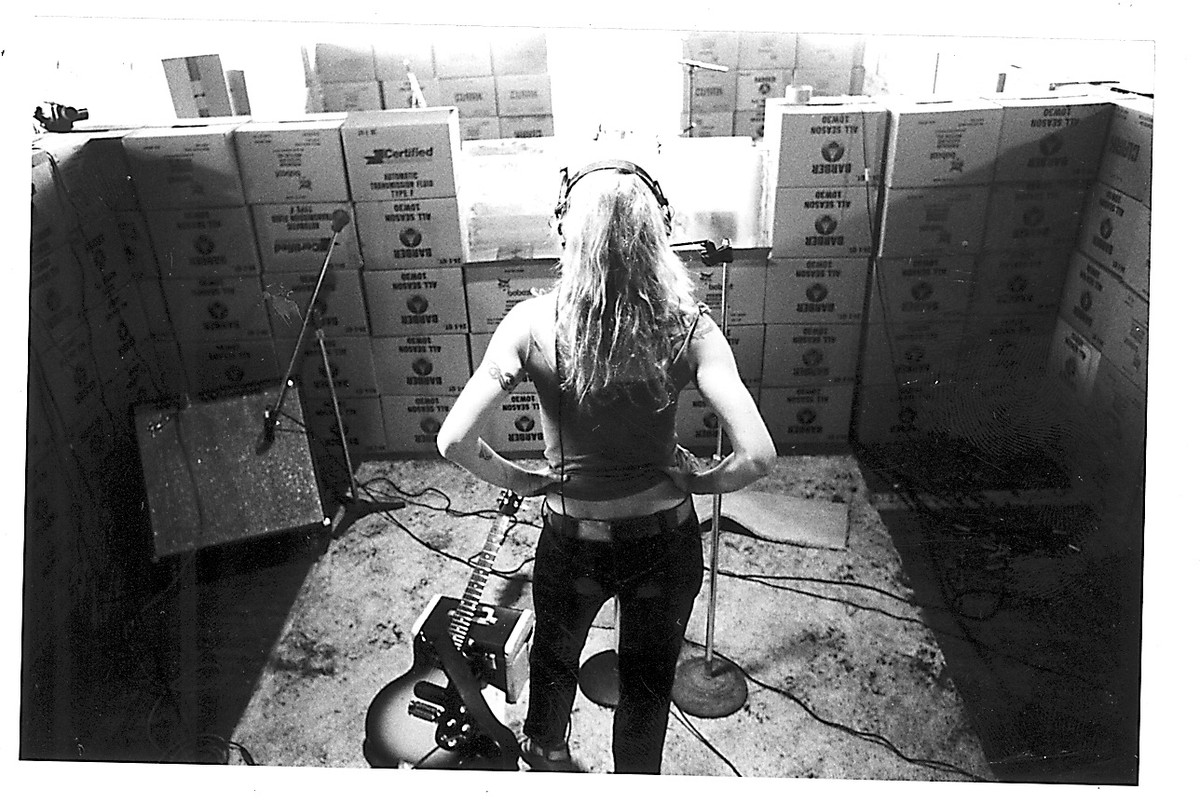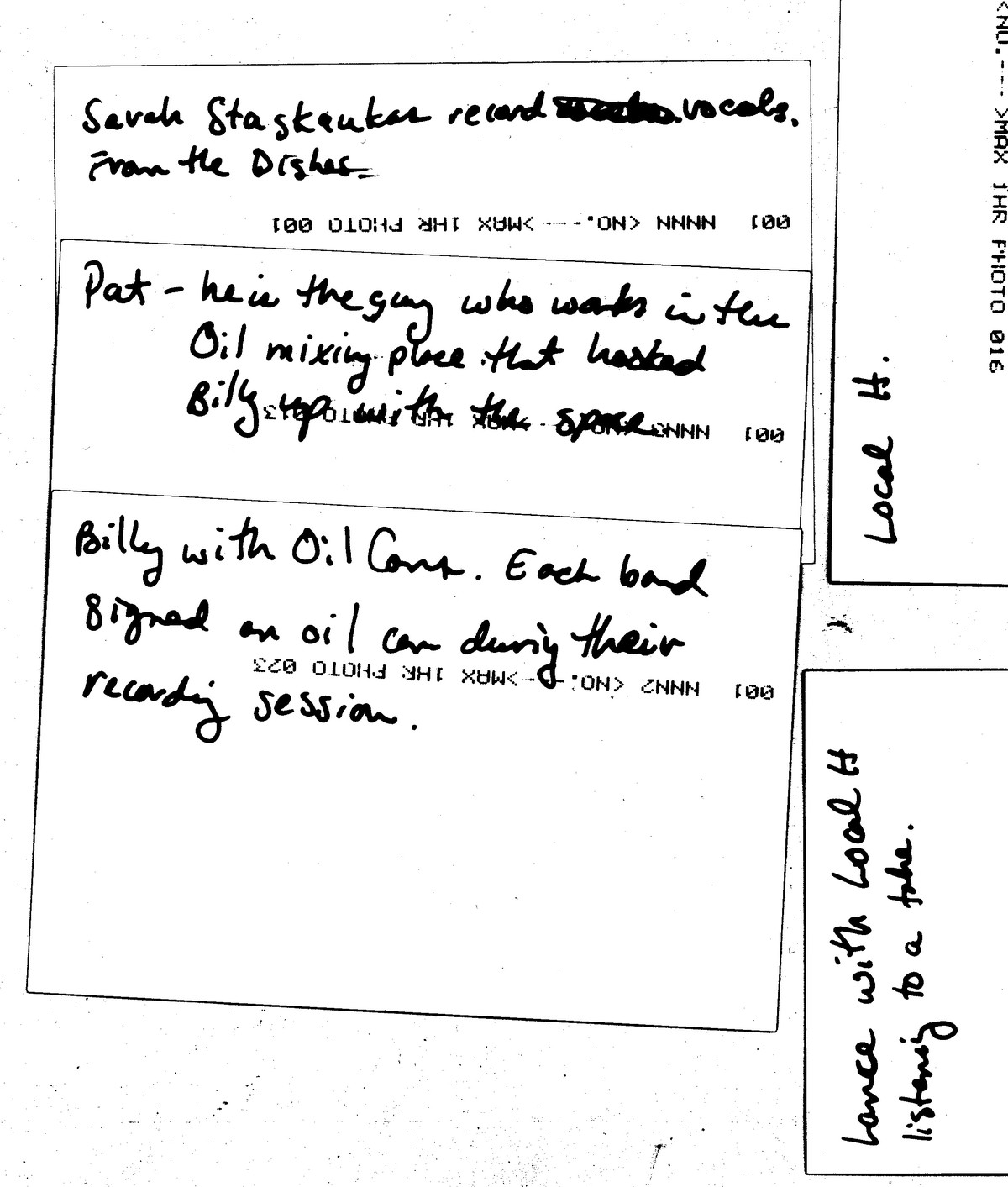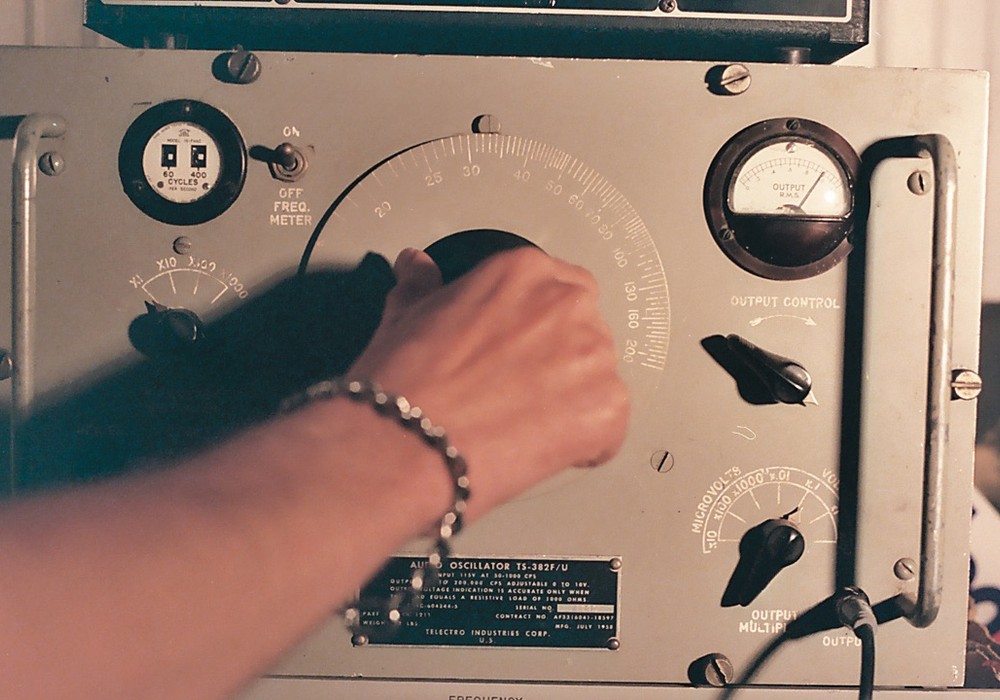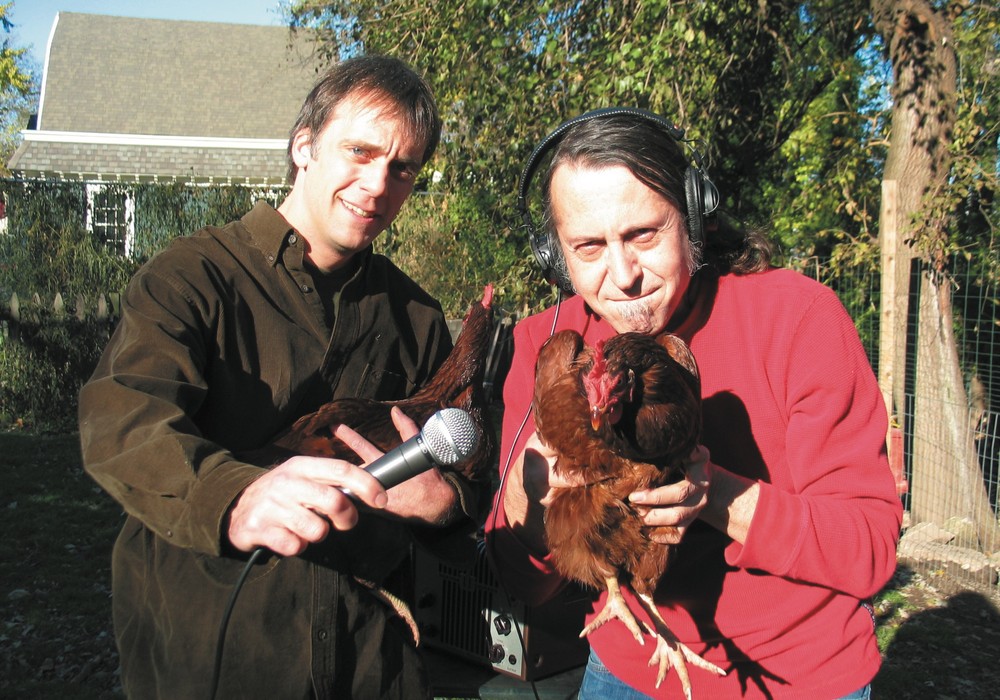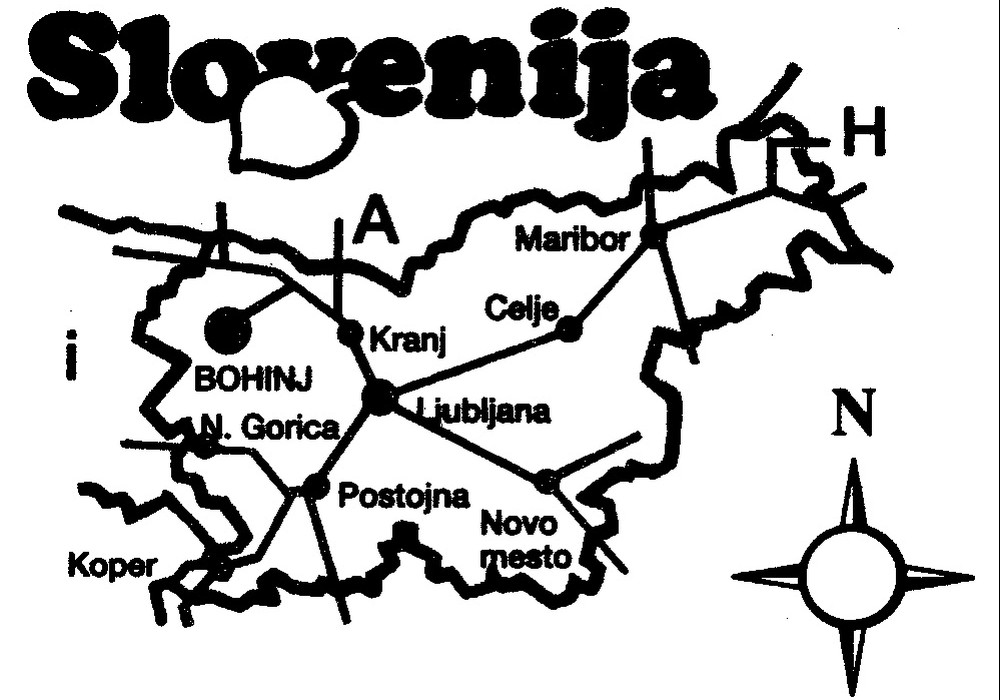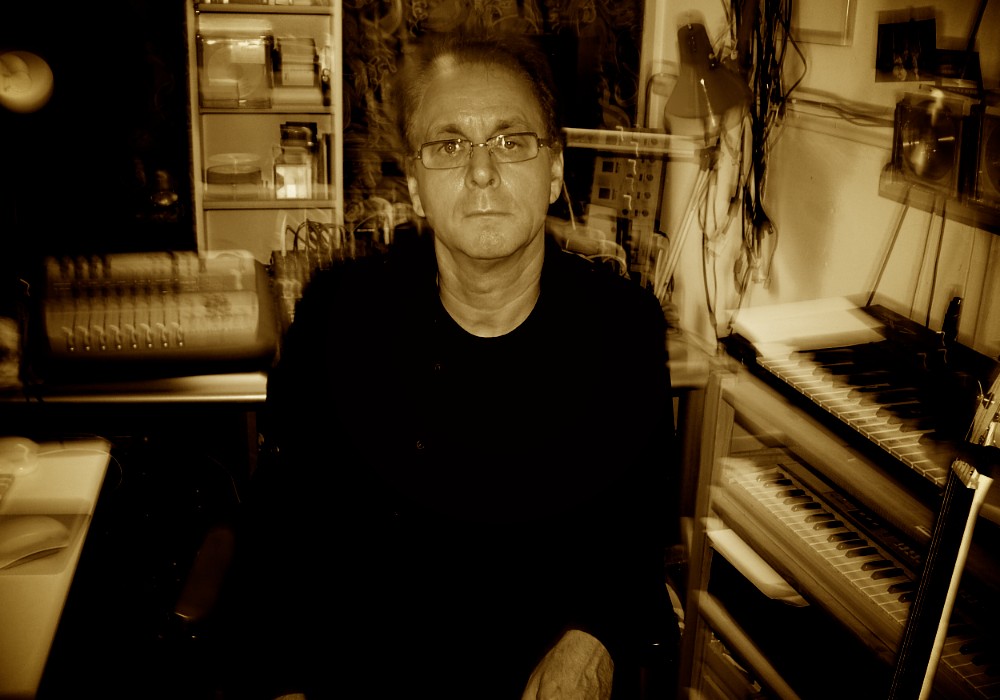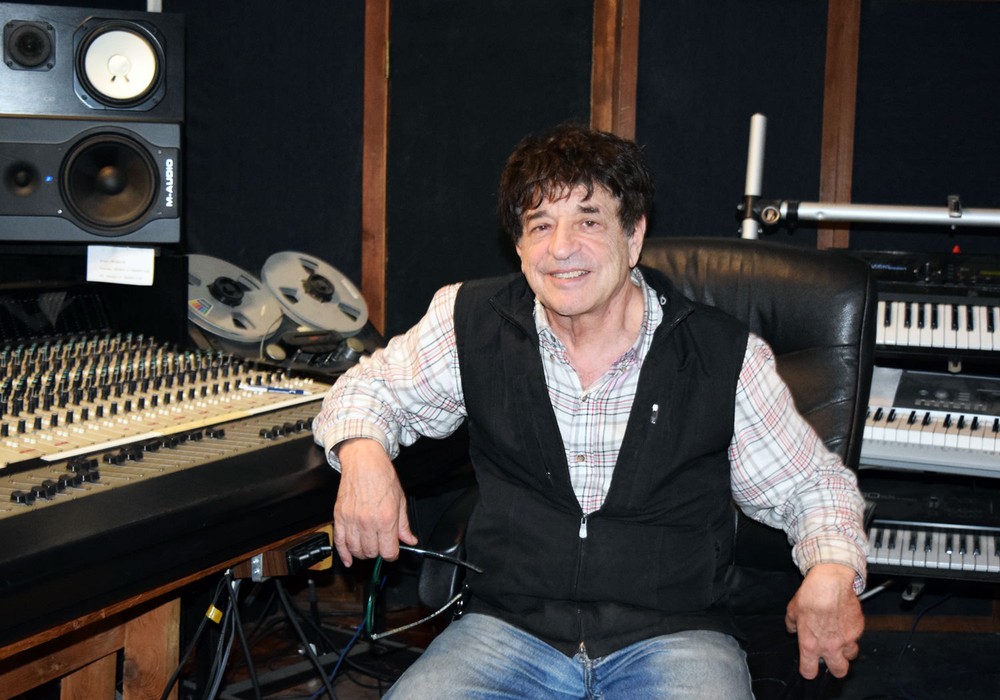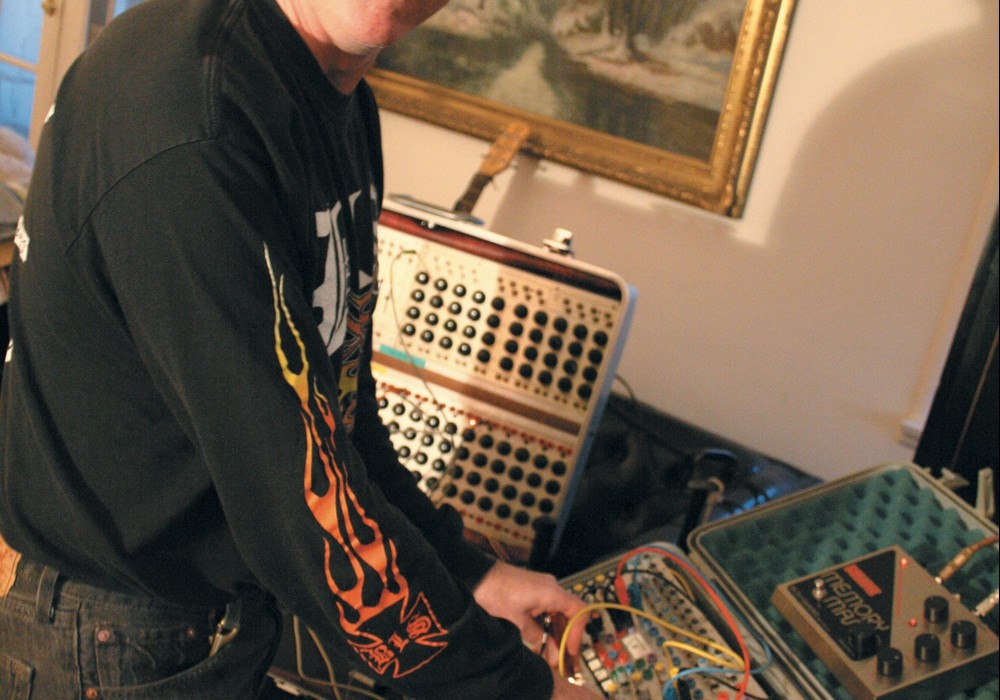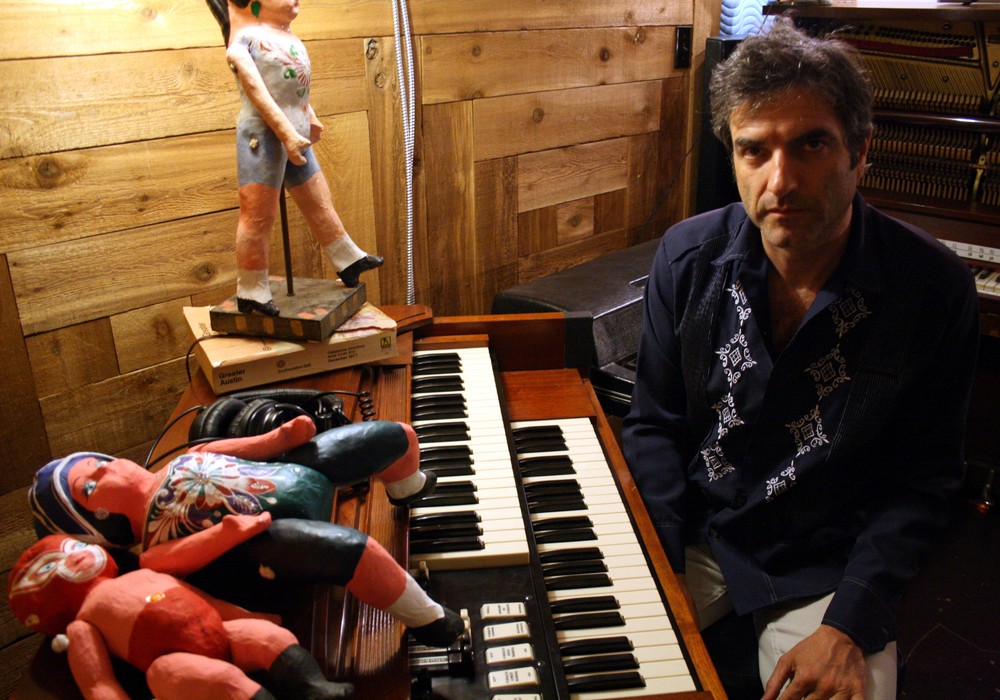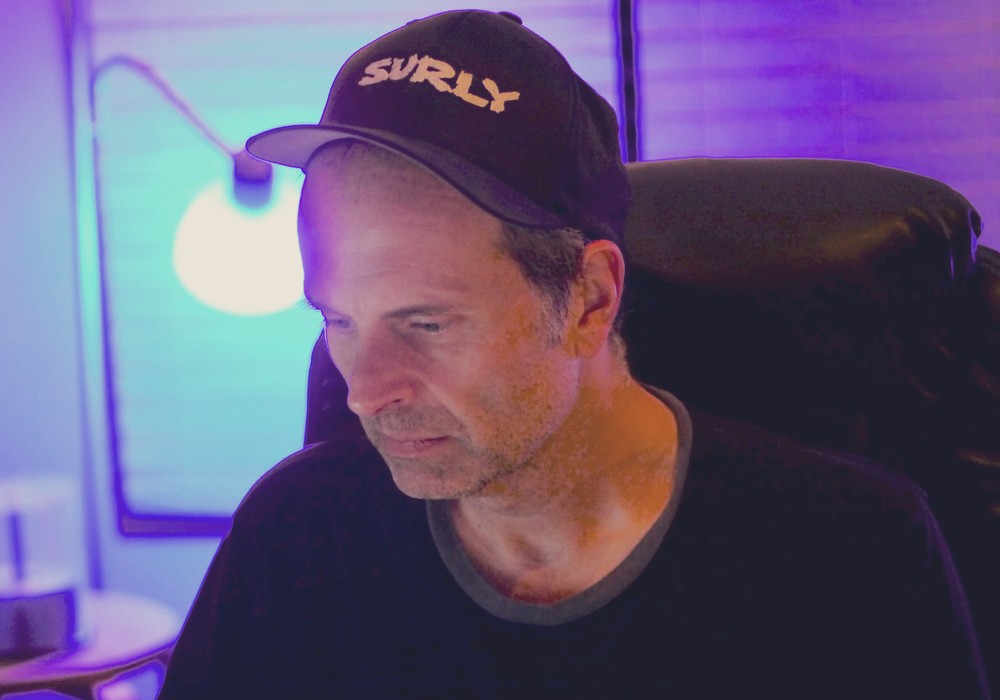Recently I visited an oil factory on Chicago's South Side, the site for a cool project that started with the idea of recording 18 bands in 18 days. To accomplish this, Billy Spunke of Thick Records was able to find and book 18 of Chicago's best rock, garage and punk bands, despite highway noise, factory work and tour schedules. Employing the services of engineer Lance Reynolds and several photographers, the project has grown into a multimedia event. I first met up with Lance to discuss the project.
So how did you get involved with this project?
Bill from Thick Records. We've been friends for a long time. I used to do live sound with his old band the Blue Meanies, also other Thick bands. I was on tour and he called and asked me to do this project. He wanted to put out another comp and this was the easiest way to get what he wanted. I've done this kind of thing before where we go into spaces. Where it turns out to be on someone's CD or just a demo or whatever. A lot of the time it just works. We're in this crazy oil mixing facility. It's so fun. It's a multi media art project. As of today we're up to the sixth band. We've had Local H, The Reputation, Plain White T's, Lawrence Arms, The Detachment Kit, and today we have The Dishes and then Haymarket Riot.
How long have the sessions been going?
We try to start at four and often go until midnight. Each band does one song. We're not mixing, just tracking. A lot of playing around too. Checking out different amps, different vocal ideas and kind of learning the songs.
Where did the gear come from?
Most of it's mine. The board's a TAC Scorpion. I love it. I think it sounds great. It needs some work, but that console to me is a great console for what you pay for it. I think it's pre Amek. [It's] especially for doing this kind of thing where we go in temporarily...
Guerilla recordings?
[laughs] Yeah. It makes the ADATs sound pretty good. I have a couple of compressors, but that's it. If I had more time I would use more gear and track to tape. As you'll see, out here I'm not in an ideal tracking situation. I'm in another room from the band, but it's all pretty open. There's no isolation. It's not great for listening either. I just try to get decent levels on tape in these situations. I do a lot of live remote where I just take a split snake and a console into a club. Most of the time I get good recordings. A lot of the time that's fine. I'm approaching this in the same way. I figured that would be the best idea. I have a Tascam ATR 80. It's a 24-track, but I didn't bring it. It's a good machine — I like it. I also work out of Dam Recording a lot. It's on Lake in the West Loop. It's a nice studio. They do a lot of R & B and hip-hop. I bring projects in there or they'll call me for a rock band. Everything else I do is freelance. And that's all between live sound gigs on tour.
Bill mentioned you were on the Warped Tour?
I was on the Warped Tour with Alkaline Trio. I do their sound.
Do you do more live sound or studio sound?
I do a lot of live stuff. I just go where the gig is.
What are some of the other bands you've done, either live or in the studio?
I did a few records for MMU30. For Ruth Buzzi, I did a record like this in an empty space.
Billy had also been videotaping interviews with all of the bands, asking questions about Chicago and oil. I spoke with him next.
So this whole project was your idea?
Coming here to the oil factory? Coming into the factory wasn't exactly my idea. The idea was to put out a compilation. About two years ago I put out a compilation on Thick Records called Magnetic Curses, a Chicago punk comp. And that was a great, great comp. The only thing that suffered about it was that about half of the tracks were exclusive to the comp and about half could be found on other records, which to me is a huge issue. So many kids put out comps these days that contain songs that bands have on other albums or some other release. There was a time when compilations were a great thing and contained songs that you couldn't find anywhere else. So the idea has sort of died. I wanted to put together Magnetic Curses 2, but the idea this time was not to accept any tracks that were not exclusive to the comp. This brought up the problem that these young punk bands had to go pay for recording time, or that the bigger bands had to schedule around their touring and whatnot. I was having no luck and I just gave it up. I was thinking about how I could make it happen and that solution was to put all the bands in a studio — pay for the time and get them all in there that way. Of course that's really expensive, so I thought, 'Well, maybe I could rent out a space, like a warehouse.' And so I was talking to Lance Reynolds and I asked: If I could get a space, would he do this? Because he wants to move away from live sound and do more studio stuff, he was all about it. He thought it was a great idea. So now I had the idea, I had an engineer and I had plenty of bands — so now I needed the space. I was talking to Pat K, whose band the Matics had submitted a song for the original comp, telling him we're not doing it but if I could find a space we had this idea of doing it that way, and Pat says, "I work at this oil factory and my band practices there so maybe you should come check it out." So I thought, 'Alright.' Lance was on a break from Warped Tour and I asked him to come check it out with me. When I saw the place I thought, 'This is it!' The electricity is great, the acoustics seemed like they would work because it has a wood floor and this huge, wood, thirty-foot ceiling with this arc to it. The only thing I wasn't sure about was that three of the walls were sheet rock and the fourth was brick and glass. But we thought we'd never know until we tried it. So I sat down with the owner of the factory, an old doctor...
He's 79, right?
I think he's 80. He's a Jewish immigrant, and still has a real thick accent. So anyway, I sat down with him to ask him if we could do this. An official meeting. Luckily, the doctor's daughter is a violinist with a symphony on the East Coast so he's got a soft spot for music. Even though he doesn't like punk rock, he agreed to it. And he went a step further and, for art's sake, gave us the space for free. He just said to take care of it, not make a mess and do it when the factory isn't working. The factory usually ends around 2 pm, so we load in around 4 pm. And there's no neighbors, so it's perfect. Okay, so now I have this space, I have an engineer, now I have to get the bands. But the problem is that I only have about 18 days to do it.
Why? Because of Lance's schedule?
Partially because of his schedule and partially because I needed to set a start and end date for the factory. So now I have 18 days to cram as many bands as possible. Mostly it's one band a day. Weekends are two, although today is three.
Three? I thought today was just two?
Yeah, but then Tom Daily, one of the photographers today, is doing a solo acoustic thing after Haymarket Riot. So now I have to call all the bands that I think are the most important and influential underground bands in Chicago, and figure out how to get their touring and personal schedules to fit so I can get them all in here. I'm not a big believer in karma, or luck or whatever, but somehow all the bands I wanted could do it. And I somehow scheduled one band a day, sometimes two or three, in eighteen days with only two days off, and now we're just doing it. And it's working. People have come and think it's a great idea and so now I've taken it a step further. I thought, 'Okay, I've got the place, I've got Lance, I've got the bands, I've got a label to put it out, a distributor... I want to bring in a different photographer every day, to document the sessions, the factory and the bands.' I'm doing some video to document it — interviewing the bands, documenting the recordings, interviewing the factory workers and getting an overview of what they do here. So now I've got in front of me, not only a great record, but endless amounts of video and photos. One guy came here the other day and shot thirty rolls of film. The plan is that we're going to take all of the best shots and not only use it for the CD packaging, but also have a gallery showing that would also be the release party for the CD. And the release of the record will be either January 20 or February 10, depending on how we stay on schedule. We're not mixing here, just tracking. Some comping of vocal takes and computer stuff at theendofa session, but that's it.
Do you think you'll mix here or somewhere else?
I think Lance would like to take it into a proper studio for the mixing. There's a budget issue, though. The end result will only be $5.99, so it's kind of like a promo item. So there's not a lot of profit to be made out of all of this. And then there's all the video. I'm not sure what I would do with it. I kind of play around with some editing software at home. So I'm thinking there might be some sort of low budget documentary too. I've done some live band videos and whatnot. We'll see. I just want to get it done first. Also, someone said that since we'll have all of these photos we should do a book. So now there might be a coffee table book! [laughs]
So a simple compilation has turned into this huge multimedia promotional packaging behemoth!
Right now for sure it will just be the CD and gallery show.
And what exactly is your role at Thick?
It's a super small operation. Zak Einstein is the owner. He is the guy who does the money, advertising, graphic design, talks to the distributors and retailers, etc. My role is really daily operations, a lot of promotion, publicity and what labels would call A and R. Zak has given me the luxury of signing bands. That's really cool.
So tell me about some of the guerilla solutions you guys have had to come up with during these sessions.
I have to say that Lance has really flourished during these sessions because it's a different band every day, bands he's never met or even never heard, one band a day. If you're in a band and you're writing or recording music it's like another language, and it's specific to that band. Lance has such good ears that after a couple hours of listening to the band he's picked up on their language. He's become a part of every band. We had The Detachment Kit in here and they have a break in their song that's, like, 40 beats long and it's just a little guitar part and vocal part. So they were tracking and the drummer was keeping time on the sticks, just click, click, click. We had a room mic up and the bleed was just unacceptable. They didn't want it. So Lance said, "Why not try it with a muted guitar?" But that didn't work either. So they couldn't figure it out, they didn't have a click track, so Lance said, "How about I take the talkback mic and I'll just tap it?" So the song goes charging along -it's just a cacophony — and then, bam! Down to nothing except for Lance tapping on the talk back and 36, 40 beats go by and, bam! They're back into it. It was perfect! That's what's great about Lance. He sees the problem and fixes it.
He's the McGyver of the sessions?
Oh yeah. He helped Local H work out some vocal problems where they were trying to fit too much into a phrase. And not only are the bands recording these songs, but some are writing them here. Lawrence Arms hadn't even really played the song they did, so they were rehearsing as we were setting up. It's a really cool energy. It may be kind of loose but it's really cool to see and listen to. With The Detachment Kit they were noodling around and experimenting for like two hours and we were wondering what was going on, then all of a sudden, bam! It all came together and was over.
What were the criteria for picking the bands? Was it personal preference?
No. There weren't exactly criteria. I just picked a lot of them because they work hard, they're touring, they've recently put out a record or are actively recording, and for all of these bands it's more than a hobby. It's a serious hobby. So I think they deserve it, in a way.
Would you do this again? Or will you have to answer that when it's all over?
I'll have to tell you later. But it has been a lot of fun, and not that much of a headache. No real issues at all. There was a band that I wanted on but couldn't do it due to schedule issues. Milemarker. They're great.
It sounds like it's been pretty exciting for you to see it all go down.
What's really cool is watching each band's system. Every band does it differently. Every band concentrates on a different thing. Like Detachment Kit was all "guitars, guitars, guitars." Plain White T's were "vocals, vocals, vocals". Lawrence Arms was "Where's the beer? Beer, beer, beer." Making sure everyone was having a great time. That was a great session, they were learning the song and having a great time and the recording shows it. It sounds like fun. The vibe is great here. You may have a studio with a clean environment, an isolated room but here we've got interstate 55. We're in Midway's flight path. The train is literally twenty feet away. There's no way to get rid of the noise here. There's a fan going all the time. At night it's cicadas. Lance and I have been fighting over leaving ambient mistakes. Like someone's cell phone went off, there's factory noise. I say leave it but he's all, "No! No!" Have you ever heard, "I've got blisters on my fingers"? How gold is that? At the same time there's photographers walking around, there's video people walking around, people hanging out, drinking beer and watching the sessions. So it's kind of loose. I think that if you're new in a band that you're going to feel like it's no pressure. Take your time, get it done. Have a good time.
